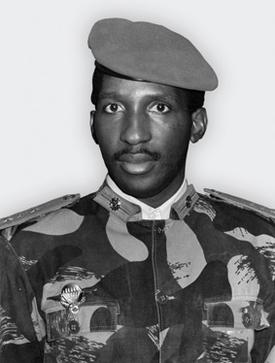By Mukuka Jackson Nawa
Thirty-four years, almost to the day, since the shocking killing of Burkina Faso’s then President, Thomas Sankara, 14 men are going on trial, accused of complicity in the murder of the man known as “Africa’s Che Guevara”.
The charismatic Pan-Africanist was shot dead aged 37 by soldiers during a coup on 15 October 1987, which saw his close friend, Blaise Compaoré, come to power.
Four years previously, the pair had staged the takeover which saw Sankara become president.
Mr Compaoré is among the 14 accused but he is currently in exile in neighbouring Ivory Coast, where he fled after being forced to resign during mass protests in 2014. He has repeatedly denied involvement in Sankara’s death and is boycotting the trial.
Despite the passage of time, Sankara remains something of an icon across Africa – stickers emblazoned with his face adorn taxis across West Africa, while across the continent in South Africa, radical opposition leader Julius Malema cites him as one of his inspirations.
Why is Sankara seen as such a hero?
“For us, Sankara was a patriot. He loved his people. He loved his country. He loved Africa. He gave his life for us,” said Luc Damiba, secretary general of the Thomas Sankara Memorial Committee.
It was under his rule that the country was renamed – from Upper Volta to Burkina Faso, meaning “Land of Upright People”.
Sankara himself led an austere lifestyle. He reduced his own salary, and that of all public servants. He also banned the use of government chauffeurs and first-class airline tickets.
Education was a key priority – while he was in power, the literacy rate increased from 13% in 1983 to 73% in 1987, and he also oversaw a massive national vaccination campaign.
He also redistributed land from feudal landlords and gave it directly to poor farmers, which led to a huge increase in wheat production.


